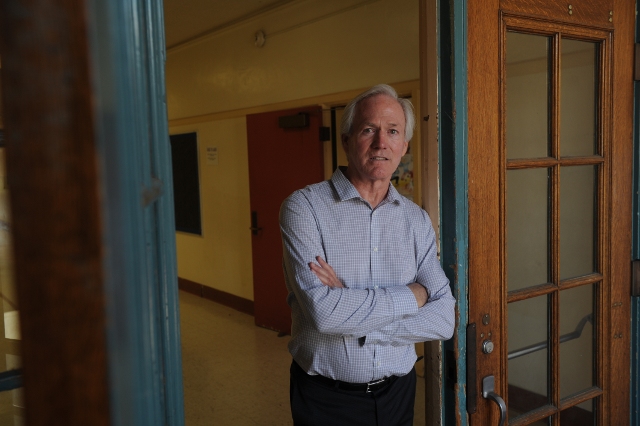
John Houchin has led the proverbial nine lives: artist, interior designer, business owner, special-education teacher, art teacher, and now — after being elected by his peers to take over as president of the Santa Barbara Teachers Association following a six-year term by Layne Wheeler — union boss.
As bargaining between the district and the union drags on toward summer, it is likely that Houchin will serve as the primary negotiator before anyone signs a new contract. He has been studying for the job since getting involved with the union in 2006 and for the past two years serving on the California Teachers Association state council while also attending emerging-leaders workshops at UCLA. “This is a poignant time for me,” he said earlier this week as he glanced wistfully around a classroom adorned with stunningly professional-looking, student-created art nouveau paintings, enlarged Tintin comic book panels, and reproductions of African masks. Whoever it is that replaces Houchin at Santa Barbara Junior High School will inherit that classroom, which is also replete with architectural drawing tables, an upstairs storage room converted into a bright exhibition gallery, and a library’s worth of art texts and lesson plans — all acquired by Houchin through personal fundraising efforts. His successor will also inherit high expectations.
Of himself, said Houchin, “I want to excel at what I do.” Of his new position, he said, “I am not here to defend bad teachers,” pushing back against criticism that the teachers unions keep poor instructors in classrooms and noting that union members are also community members who have a personal stake in exceptional teaching. As head of the union, he said, his primary concerns will be working conditions, class size, and salary. District teachers have not received a raise in six years while health insurance costs have risen about 10 percent each of those years. Maximum class sizes have grown by five students to 26 in elementary schools and 38 in secondary schools.



